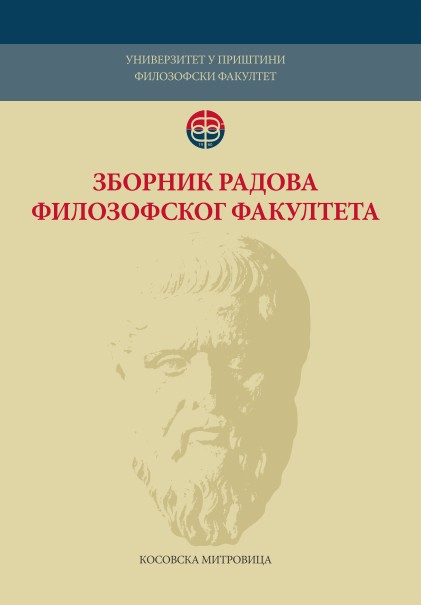Концепт времена и смрти у Шекспировим сонетима
The concept of time and death in Shakespeare's sonnets
Author(s): Ana M. AndrejevićSubject(s): Language and Literature Studies, Studies of Literature, British Literature
Published by: Филозофски факултет, Универзитет у Приштини
Keywords: Shakespeare; sonnet; death; immortality; mutability; time
Summary/Abstract: A Renaissance sonneteer conventionally describes a sublime love for an idealised woman, who is often unconquerable. However, Shakespeare's sonnets addressed to a woman reveal her sexual nature and ugliness of her figure and character, while those dedicated to a man idealise love. Apart from this most obvious distinction, Shakespeare's sonnets are more personal and elegiac than all the sonnets of his predecessors, due to the poet's expressed obsession with the devastating effect of time. The author of the paper will focus on such Shakespeare's expressions, especially on those sonnets in which the fear of death, mutability, and transience of life are the dominant feelings. By selecting these general motifs for the analysis, the traditional classification of Shakespeare's sonnets into those dedicated to a man (1-126) and those addressed to the Dark Lady (127-154) will be avoided.
Journal: Зборник радова Филозофског факултета у Приштини
- Issue Year: 49/2019
- Issue No: 2
- Page Range: 121-142
- Page Count: 22
- Language: Serbian

